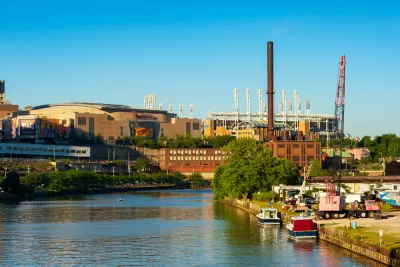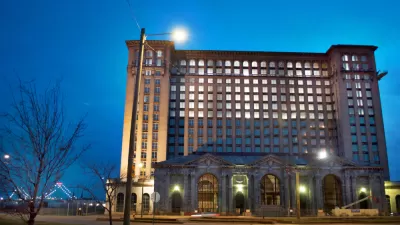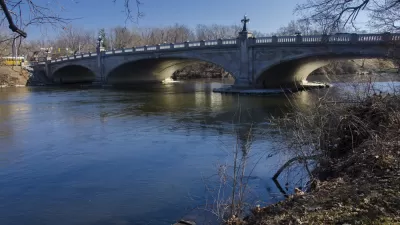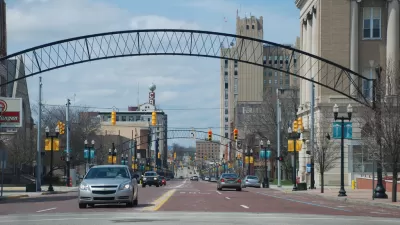A new report outlines seven strategies for balancing economic development and equity specifically aimed at smaller, post-industrial cities.

A Policy Focus Report from the Lincoln Institute of Land Policy outlines how "legacy cities"—post-industrial towns that have largely lost their traditional economic base—"can promote long-term growth while addressing racial and economic inequities laid bare by COVID-19." The report uses case studies to map out strategies guiding "practitioners through equitable investment in both physical projects and people."
As Emma Zehner writes, "[t]he report focuses on small to mid-size legacy cities with populations of 30,000 to 200,000 residents. Though they share many characteristics with their larger counterparts, these cities face unique challenges and require tailored approaches to revitalization." The seven strategies suggested in the report "are tailored to the unique challenges of these small to mid-size legacy cities and also draw on their unique opportunities—such as a lack of market pressures that allows leaders more time to get plans right." Some of the recommendations "build on existing programs—e.g., integrating racial equity analyses into routine local government decision-making—while others stand alone—e.g., programs that build the leadership pipeline and civic capacity of underrepresented groups."
The report's authors emphasize that equity does not have to come at the expense of economic development. In fact, "greater equity can both improve everyone’s access to opportunity and support the economic prospects of cities."
For a deeper dive on equitable economic development in legacy cities, see also the previous iteration of this report, published by the Lincoln Institute of Land Policy in 2017.
FULL STORY: Seven Strategies for Equitable Development in Smaller Legacy Cities

Planetizen Federal Action Tracker
A weekly monitor of how Trump’s orders and actions are impacting planners and planning in America.

Congressman Proposes Bill to Rename DC Metro “Trump Train”
The Make Autorail Great Again Act would withhold federal funding to the system until the Washington Metropolitan Area Transit Authority (WMATA), rebrands as the Washington Metropolitan Authority for Greater Access (WMAGA).

DARTSpace Platform Streamlines Dallas TOD Application Process
The Dallas transit agency hopes a shorter permitting timeline will boost transit-oriented development around rail stations.

Renters Now Outnumber Homeowners in Over 200 US Suburbs
High housing costs in city centers and the new-found flexibility offered by remote work are pushing more renters to suburban areas.

The Tiny, Adorable $7,000 Car Turning Japan Onto EVs
The single seat Mibot charges from a regular plug as quickly as an iPad, and is about half the price of an average EV.

Supreme Court Ruling in Pipeline Case Guts Federal Environmental Law
The decision limits the scope of a federal law that mandates extensive environmental impact reviews of energy, infrastructure, and transportation projects.
Urban Design for Planners 1: Software Tools
This six-course series explores essential urban design concepts using open source software and equips planners with the tools they need to participate fully in the urban design process.
Planning for Universal Design
Learn the tools for implementing Universal Design in planning regulations.
Municipality of Princeton
Roanoke Valley-Alleghany Regional Commission
City of Mt Shasta
City of Camden Redevelopment Agency
City of Astoria
Transportation Research & Education Center (TREC) at Portland State University
US High Speed Rail Association
City of Camden Redevelopment Agency
Municipality of Princeton (NJ)





























